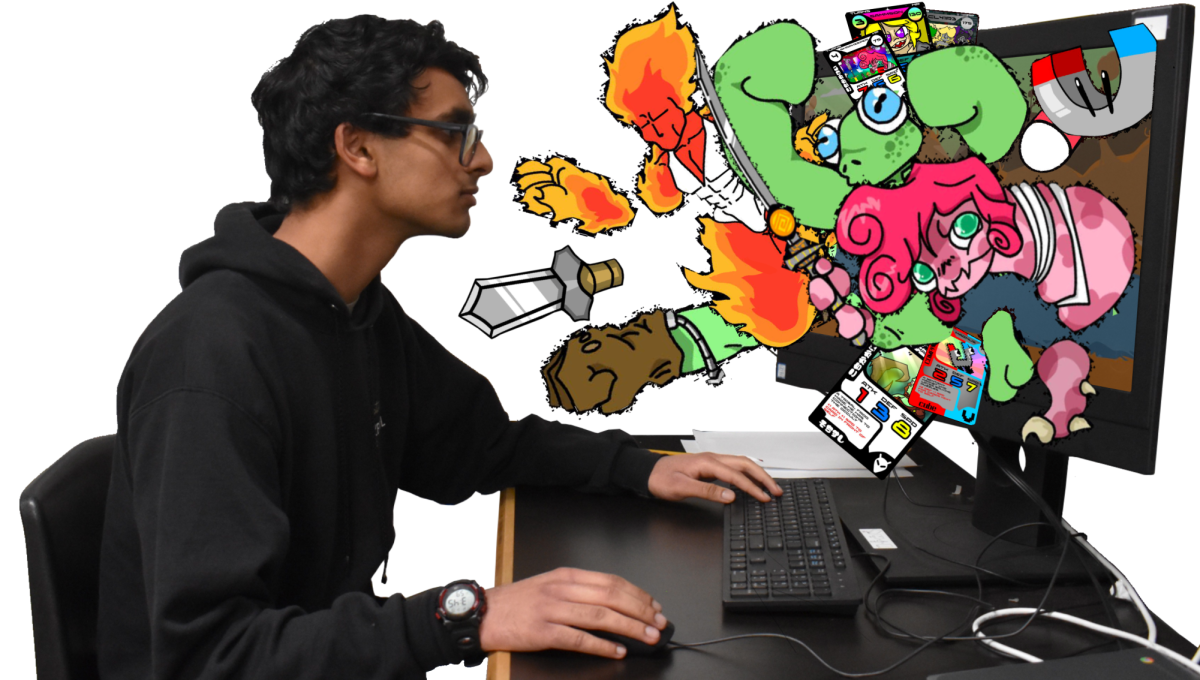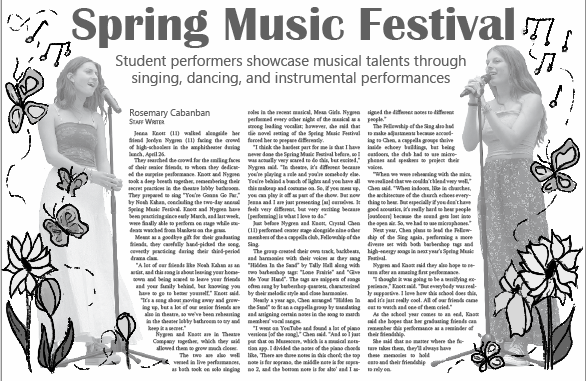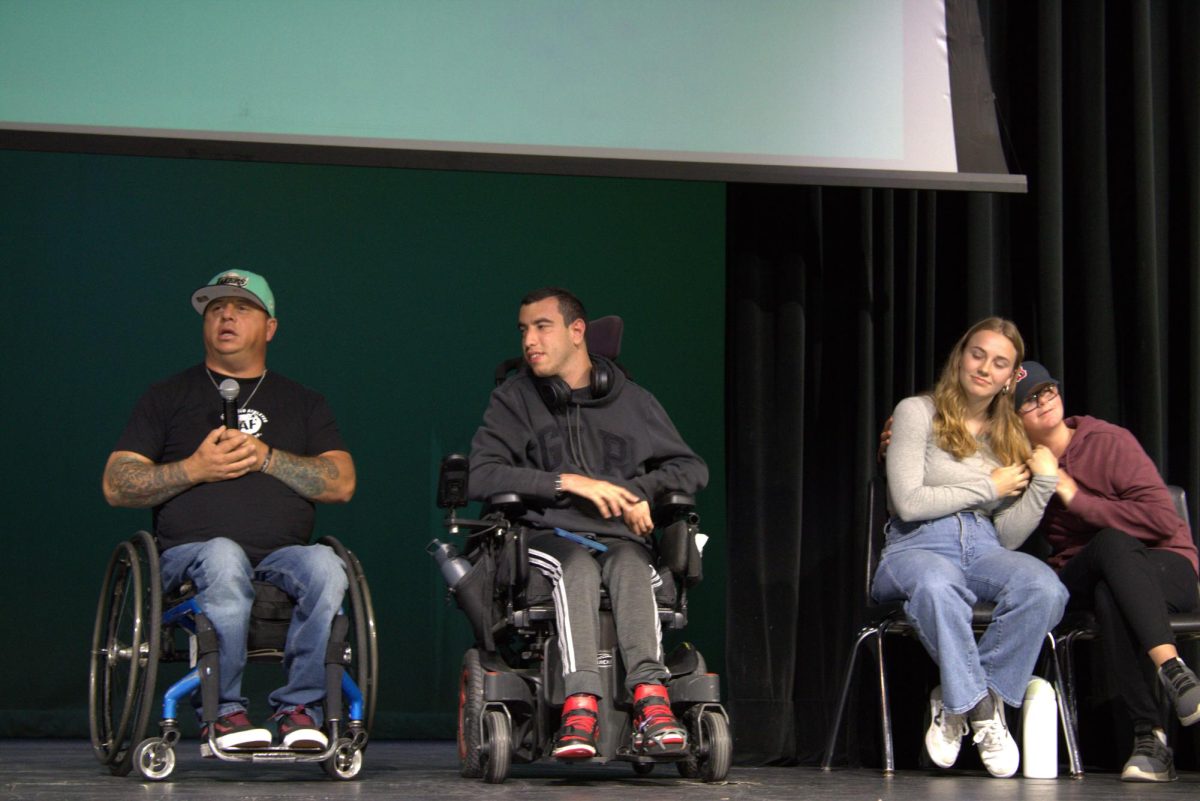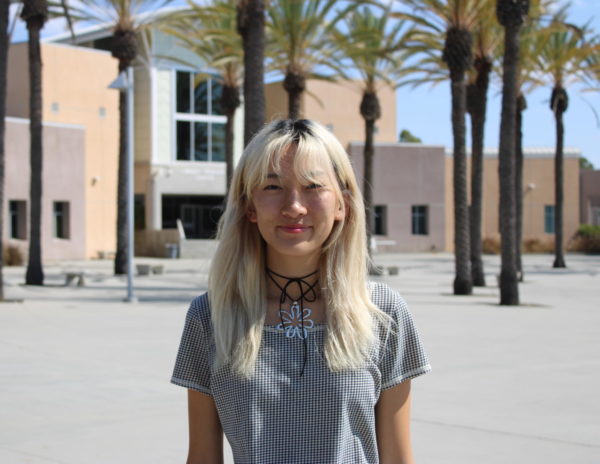For all 30 days of November, Westview Game Design club focused its efforts on one task — designing, programming, and scoring music for a game. Among the other 631 participants in the 2023 Github Game Off, the club had one theme word for guidance in this competition: “Scale.”
“We went on a call, had a big brainstorming session, and narrowed down ideas until we had a final vote and decided on one,” Adam Levin (12) said. “We wanted to try to [make] something different. We haven’t made a game that’s anything like the game we made [for this competition.]”
Game Off is a month-long, annual game jam event that challenges competitors to make a game from scratch based on a theme announced in early November. Submitted games are then reviewed, scored, and commented on by other people in the game-developing sphere.
The theme “Scale,” of Game Off 2023, led the club’s seven-person crew to their creation, “Scalien Showdown,” an auto battler game using game cards, inspired by Super Auto Pets. The team placed 237th out of 632 competitors with their game.
The production process began when game artist Nikolas Pautov (12) and game programmer Jacob Yakubisin (12) presented their outer-space, card battler idea to their teammates.
“We decided to interpret it as power-scaling where you get more powerful as the game goes on,” Pautov said. “I came up with the general idea and [Yakubisin] added the idea of pellets you give to the characters to make them more powerful. We drew up a sketch, presented it to the other people in the club, everyone seemed to like that idea and we went forward with it. After that, I started designing mockups [of] the [cards] based on old Pokemon cards from 2007.”
With just a drawing app on his phone and inspiration from various games and animes, Pautov spent hours drawing and developing character designs.
“It got tiring near the end, especially because each character had three images,” Pautov said. “By the end, we had 21 [characters] and I had around 24 hours [on] the canvas that I drew them on. I drew them on my phone so it’s not great when I [lose the vision] I was going for, but a lot of people in the comments [section] seemed to like it. I think it’s less the quality of the art and more the idea behind it. The designs are creative and people liked that more than anything else.”
The club had designed and coded a game for the same competition last year, but the project was ultimately abandoned and left unfinished. According to club president Rahul Jogadhenu (12), this time around was a much more satisfying experience.
“For a lot of the [other] different games we’ve made, we’ve tried to focus on having an approachable goal,” Jogadhenu said. “One of our general tenants is trying to make [our goal] something we can do in half the time [in order to] give us at least a week or two left to make better levels, add extra polish [and] mechanics. We’ve tried budgeting our time better and having ideas that are simpler, but still extremely fun.”
Despite the hours put into his craft, Pautov said one of the most important things he’s learned as the game artist was to not fixate on every idea.
“Sometimes we just have to cut content,” Pautov said. “It’s kind of the danger of drawing things before actually programming them into the game, which is something our club tends to do a lot. For example, I [made all these] custom frames for the cards. Those never ended up making it into the game. No one ever saw them, but I still made them. It just is what it is. We managed to get to a majority of the ideas, [but] if they don’t fit, you’ve got to let go of ideas.”
Jogadhenu recalls the first playthrough of the game, where the entire club joined to behold the completed game.
“It was great to see how everything turned out,” he said. “One of the best moments for me was seeing all of [Pautov’s] designs for the different aliens. There were over 20 unique ones, which was incredible to see. It was a great moment when we played it during a club meeting and saw how everyone was crowded around, excited, seeing the final result.”
Jogadhenu mainly focused on composing the music for “Scalien Showdown,” which was a component of the game that was developed later on.
“[The music] just depends on the vibes of other aspects of the game since it’s a lot easier to do art first,” he said. “[It’s] mainly based on trying to find something that works with the art style and also with the game. [I thought of] something more upbeat and fast-paced for the music [and] I made it in Garageband.”
Pautov said his role as the artist was less present throughout the process, making the final playthrough all the more rewarding as he saw his art come to life.
“This is a game that I was really happy with,” Pautov said. “It was really fun actually getting to play it. I think it’s less like that for programmers who play it along the way, but for me [it was] just like, ‘OK, here’s the images. I’ll come back in like a week to see what you did.’ I’m really happy with how all the animations look and how everything ended up fitting together.”
For Pautov, the club has been a space he indulges in out of personal interest and enjoyment.
“I’ve made games even by myself for a while before I joined the club,” Pautov said. “Apart from that, I had some friends that [were in] the club so I just found out about it from them. It’s been the only club that I’m consistently participating in because it’s just so fun.”
Growing up playing Mario games and Zelda: Breath of the Wild, Jogadhenu said his involvement in computer science-related activities has been an outlet to explore and diversify his own interests.
“I’m personally a computer science-focused person,” he said. “I [joined the club] in ninth grade because I wanted some way to learn more about computer science and game development is a fun way to do so. But game development also has a lot of other aspects that are really interesting to learn about. For example, pixel art is something I really enjoy. I’m not great with normal art, but pixel art is a rather unique way to mesh different [methods] together.”
From an idea that evolved over Discord calls that’s now materialized into a playable game, Pautov said he’s proud of what he and the club made together.
“It’s the realization that we made something,” Pautov said. “It’s real, it’s there, it’s in a competition, other people are playing it, they’re leaving positive reviews [and] giving good constructive criticism. It’s great to see the culmination of all [our work].”






